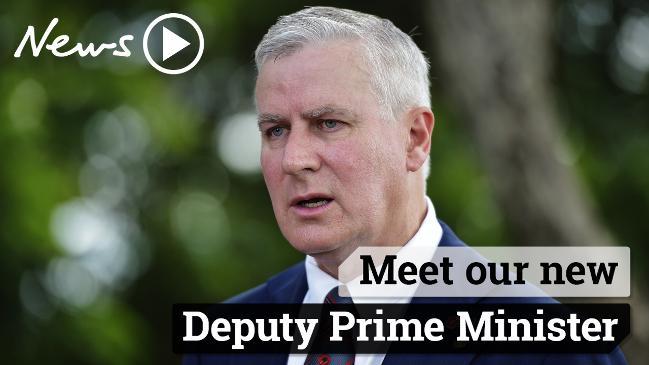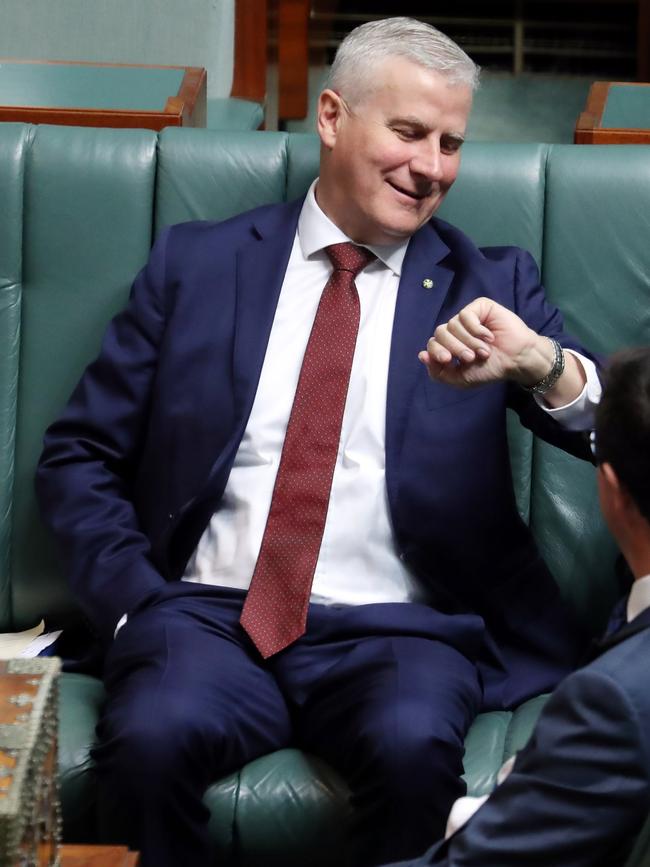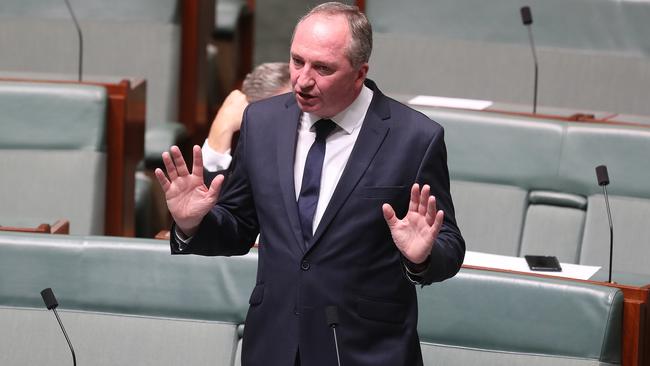Caleb Bond: Internal National Party polling found leader Michael McCormack was near invisible to voters
The Nationals were, for decades, an unstoppable force. But today, their leader is someone largely unknown to voters, writes Caleb Bond.

Opinion
Don't miss out on the headlines from Opinion. Followed categories will be added to My News.
There was a time when rural Australia had a serious say in the way this country operated.
The Nationals were, for decades, an unstoppable force. Sir Joh Bjelke-Petersen ruled Queensland for more than two decades through times of economic boom and rampant development. With the support of his rural Queensland voter base, he did more for the state than almost anyone.
Of course, he was later mired in allegations of corruption – and he was always a divisive figure. But no one can question the enduring legacy he has had on Queensland.
His power and popularity meant a “Joh for Canberra” campaign was mounted to send him to the Lodge. It failed quite spectacularly – but it still speaks to just how visible the Nationals were at the time.
And what do we have today?
Internal polling conducted for the National Party before Christmas found leader and Deputy Prime Minister Michael McCormack was “near invisible” to voters and those who did know about him were more likely to be unsatisfied with his performance. This man is meant to be standing up for rural and regional Australia and yet most people don’t know who he is.

Barnaby Joyce, for all his faults, has been a fierce advocate for people on the land. He is straight forward, well known and doesn’t take any crap. As leader he was always across his brief, could speak off the cuff on just about any topic, and kept the objectives of rural Australia at the front of the national agenda.
And we shouldn’t forget that the mild-mannered Warren Truss lifted his party’s lower house representation by a third.
But now we’re left with a weakened National Party, absent from the country’s political conversation, at risk of losing seats at the upcoming election and led by someone nobody knows.
This is a significant problem – not just for NSW and Queensland where the Nationals have always been strongest, but across the whole country, including South Australia. Now, more than ever, rural and regional Australians need strong advocates in Canberra.
As manufacturing falls away, some of the country’s biggest economic drivers will be outside of cities. Take mining, for example. In SA, we have the steelworks at Whyalla and Olympic Dam in the Far North.
Without the bush, we would be stuffed. The mining, the agriculture, the industry. They provide enormous wealth and resources to our country – food, grain, wool, wine, minerals and metals. They keep the wheels of our economy turning. They keep alive the thousands of country towns, full of small local businesses, that townies like to visit.
Without the bush, we are nothing. It embodies the culture of Australia, the hardworking nature of what has made this nation great.
This sometimes comes under attack from the green elements of politics – see the recent map released by animal liberation types of hundreds of farms across the country designed to spur people into enacting their own justice on innocent people trying to earn a crust.
Where is the action? We pay lip service to the bush, but few do anything for them. Pauline Hanson and Clive Palmer promised to help the forgotten people, but what have they achieved?

The Nationals need some talent – and fast. Unless they can find someone as fierce and popular as Joyce, they may have to bite the bullet and bring him back.
With a Labor government likely around the corner, how much confidence can the people on the land have that their concerns will be listened to?
Particularly at a time when the ALP grapples with the policy pull of its green Left.
When former NSW Liberal premier Mike Baird announced a greyhound racing ban, what did many of the Nationals do? They voted for it. This is their problem – they have become a branch of the Liberal Party, not an advocate for the bush.
Baird ultimately fell on his sword for that and the Nationals fell further into obscurity. If they’re not careful, they’ll shrivel up altogether – and the economic and cultural implications will be far wider than any of us can predict.


